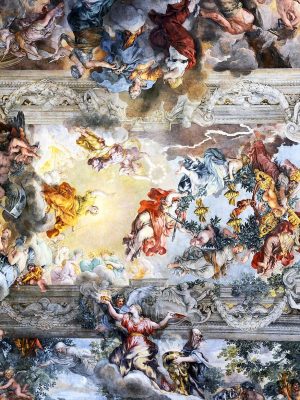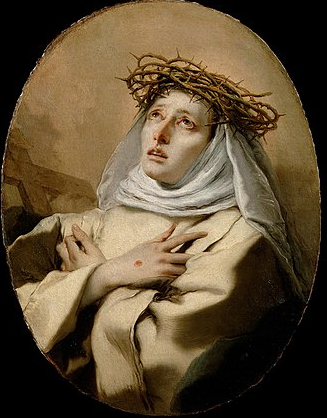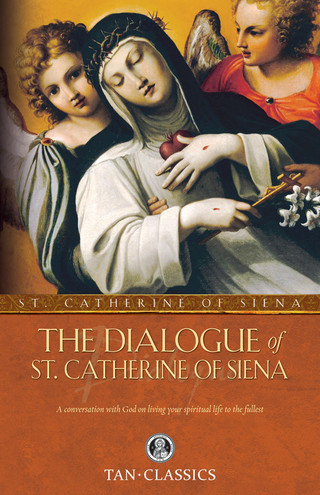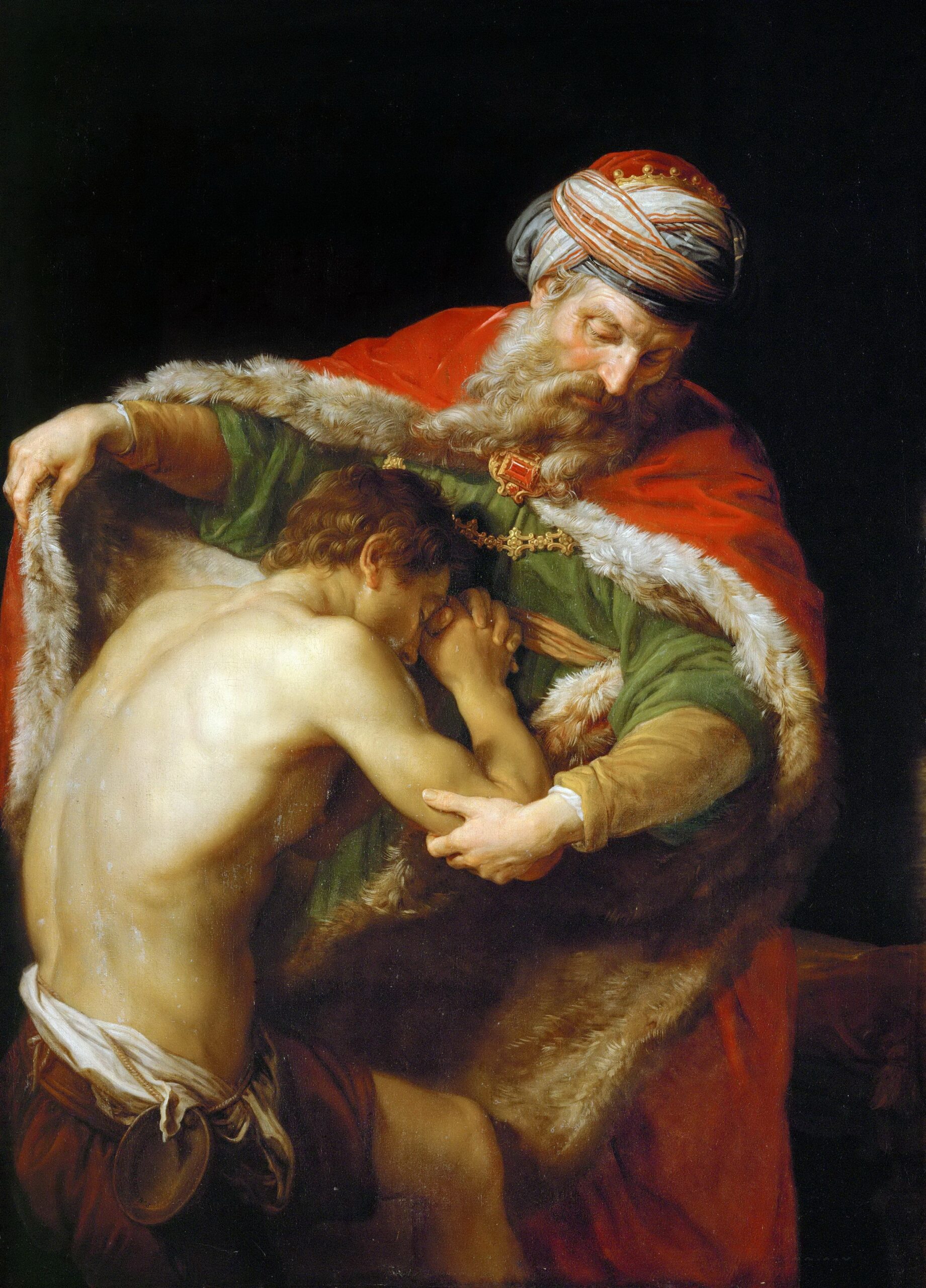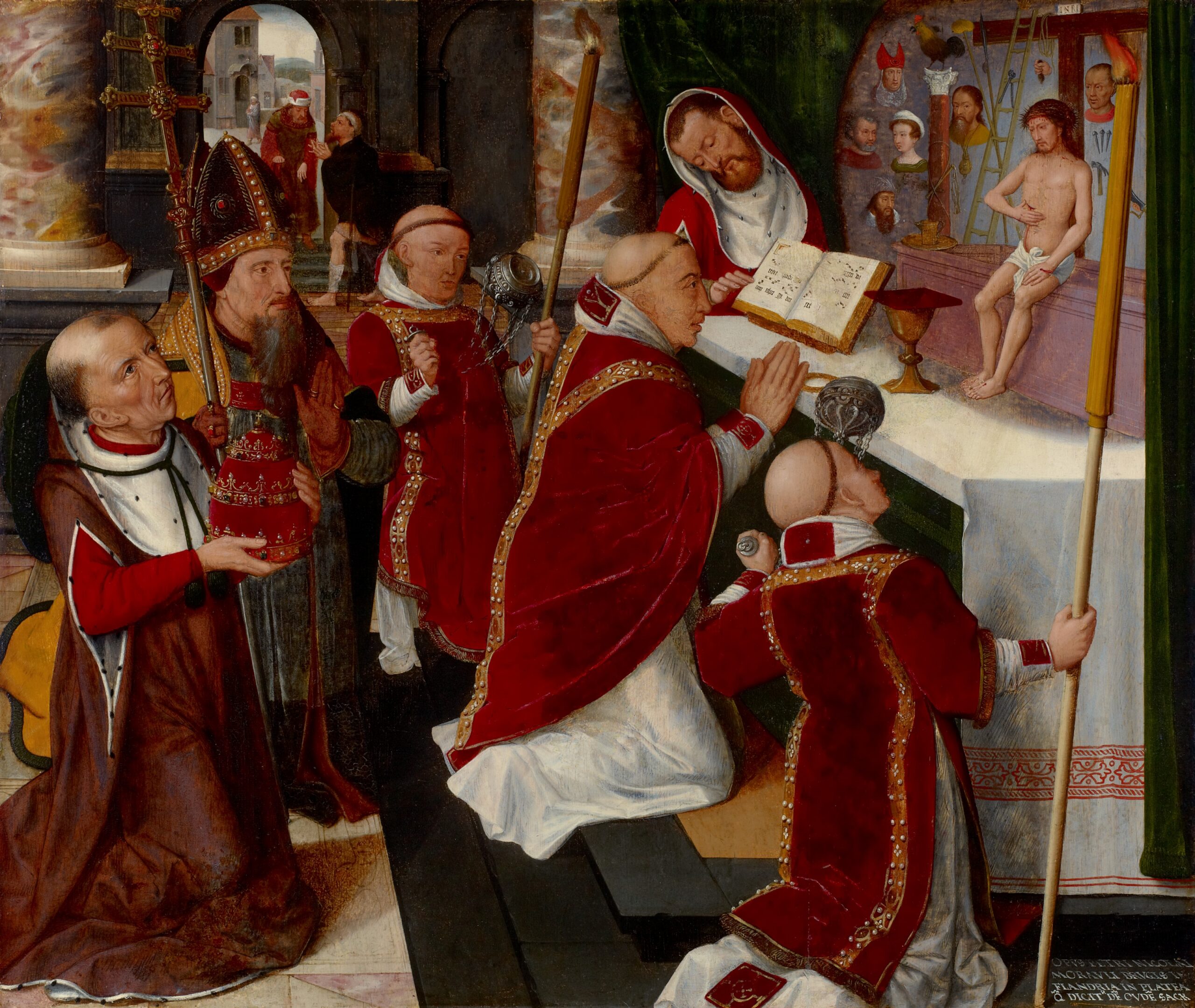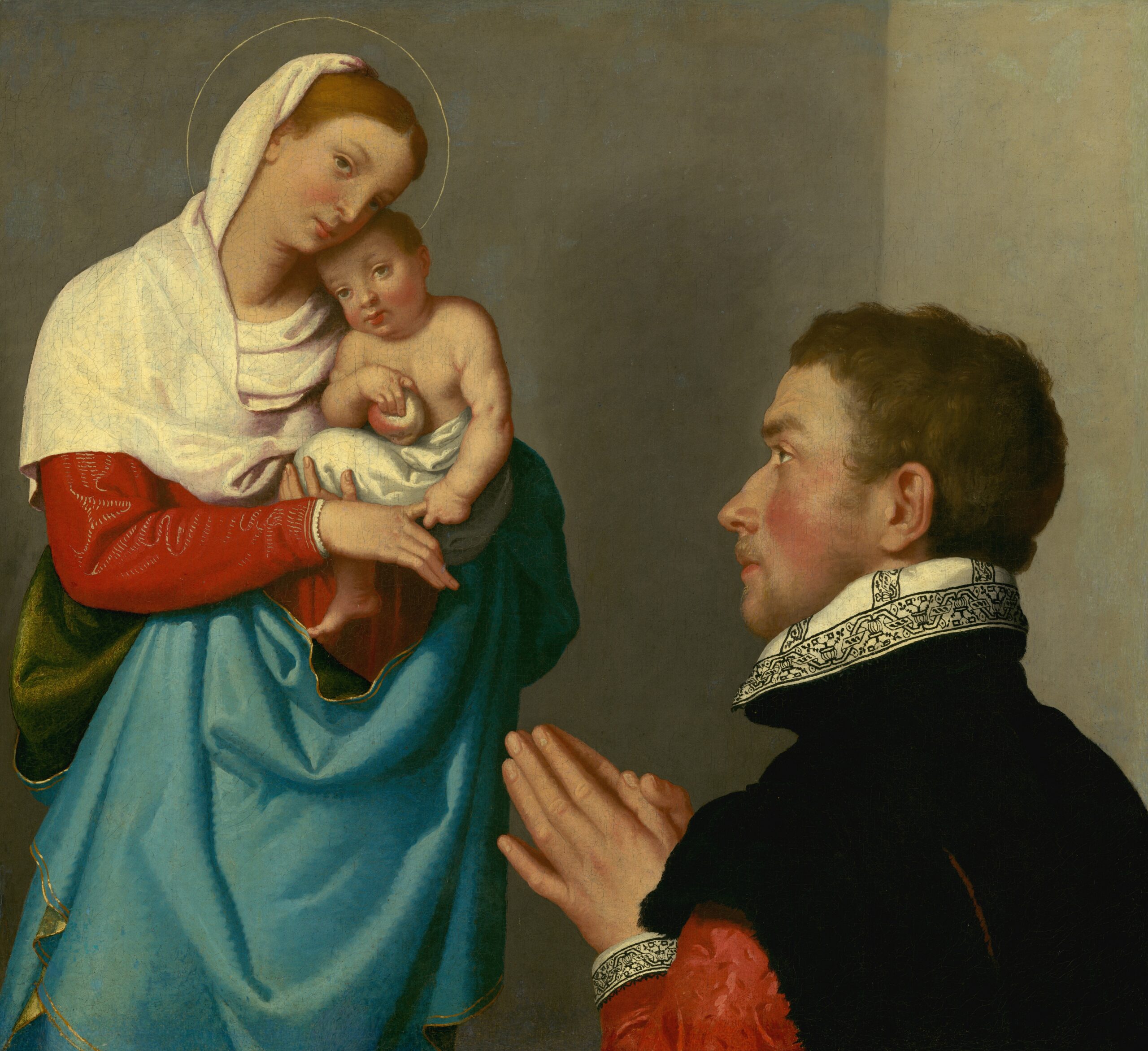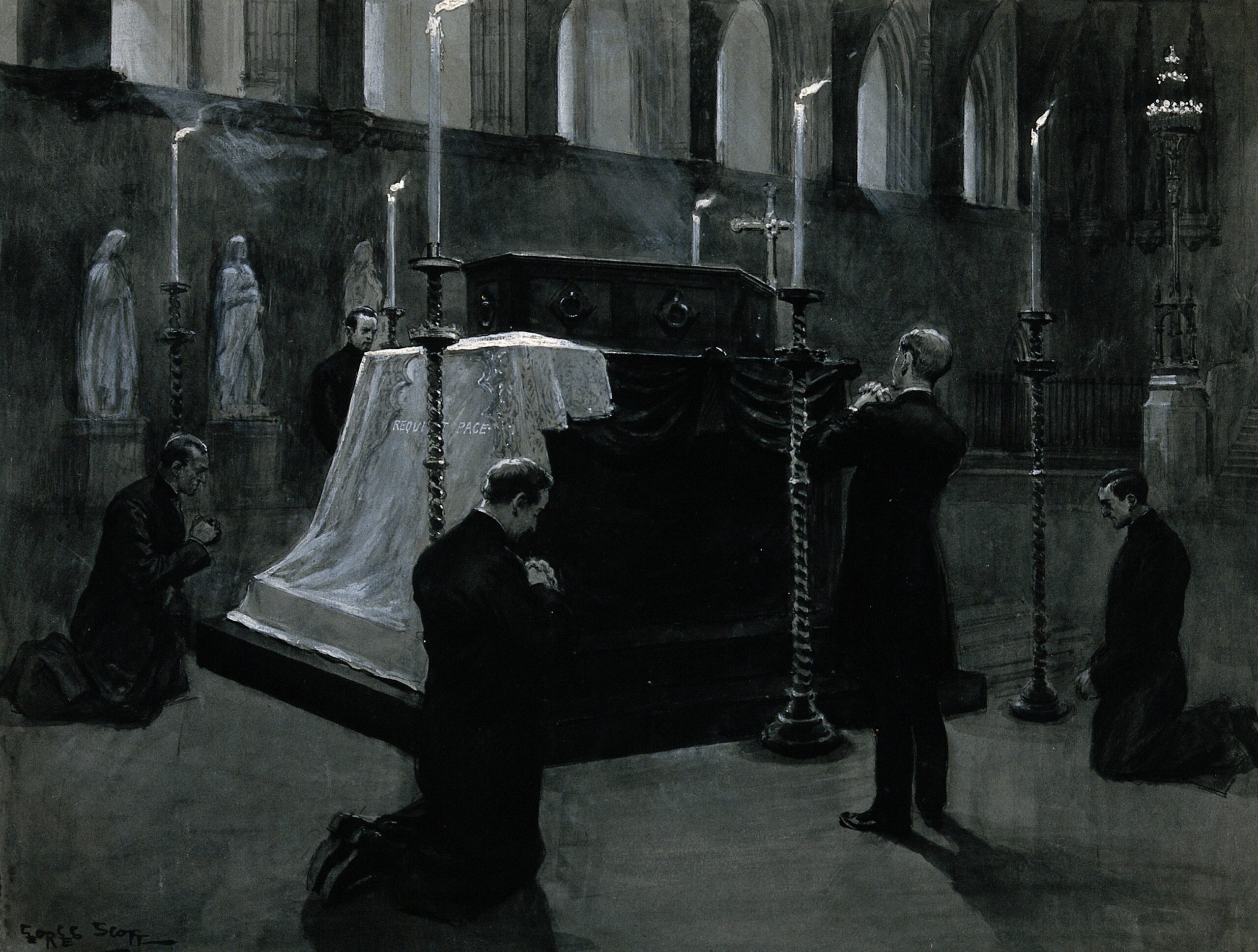The following excerpt was taken from the The Dialogue of Saint Catherine of Siena. Written by the saint herself, Saint Catherine shows how a soul, after seeing the union of the soul, seeks it diligently, asking of God four requests.
Knowledge Must Precede Love
THE SOUL, who is lifted by a very great and yearning desire for the honor of God and the salvation of souls, begins by exercising herself, for a certain space of time, in the ordinary virtues, remaining in the cell of self-knowledge, in order to know better the goodness of God towards her. This she does because knowledge must precede love, and only when she has attained love, can she strive to follow and to clothe herself with the truth. But, in no way, does the creature receive such a taste of the truth, or so brilliant a light therefrom, as by means of humble and continuous prayer, founded on knowledge of herself and of God; because prayer, exercising her in the above way, unites with God the soul that follows the footprints of Christ crucified, and thus, by desire and affection, and union of love, makes her another Himself. Christ would seem to have meant this, when He said: To him who will love Me and will observe. My commandment, will I manifest Myself; and he shall be one thing with Me and I with him. In several places we find similar words, by which we can see that it is, indeed, through the effect of love, that the soul becomes another Himself. That this may be seen more clearly, I will mention what I remember having heard from a handmaid of God, namely, that, when she was lifted up in prayer, with great elevation of mind, God was not wont to conceal, from the eye of her intellect, the love which He had for His servants, but rather to manifest it; and, that among other things, He used to say: “Open the eye of thy intellect, and gaze into Me, and thou shalt see the beauty of My rational creature. And look at those creatures who, among the beauties which I have given to the soul, creating her in My image and similitude, are clothed with the nuptial garment (that is, the garment of love), adorned with many virtues, by which they are united with Me through love. And yet I tell thee, if thou shouldest ask Me, who these are, I should reply” (said the sweet and amorous Word of God) “they are another Myself, inasmuch as they have lost and denied their own will, and are clothed with Mine, are united to Mine, are conformed to Mine.” It is therefore true, indeed, that the soul unites herself with God by the affection of love.
Four Requests to the Supreme and Eternal Father
So, that soul, wishing to know and follow the truth more manfully, and lifting her desires first for herself—for she considered that a soul could not be of use, whether in doctrine, example, or prayer, to her neighbor, if she did not first profit herself, that is, if she did not acquire virtue in herself—addressed four requests to the Supreme and Eternal Father. The first was for herself; the second for the reformation of the Holy Church; the third a general prayer for the whole world, and in particular for the peace of Christians who rebel, with much lewdness and persecution, against the Holy Church; in the fourth and last, she besought the Divine Providence to provide for things in general, and in particular, for a certain case with which she was concerned.
How the desire of this soul grew when God showed her the neediness of the world.
THIS desire was great and continuous, but grew much more, when the First Truth showed her the neediness of the world, and in what a tempest of offense against God it lay. And she had understood this the better from a letter, which she had received from the spiritual Father of her soul, in which he explained to her the penalties and intolerable dolor caused by offenses against God, and the loss of souls, and the persecutions of Holy Church.
All this lighted the fire of her holy desire with grief for the offenses, and with the joy of the lively hope, with which she waited for God to provide against such great evils. And, since the soul seems, in such communion, sweetly to bind herself fast within herself and with God, and knows better His truth, inasmuch as the soul is then in God, and God in the soul, as the fish is in the sea, and the sea in the fish, she desired the arrival of the morning (for the morrow was a feast of Mary) in order to hear Mass. And, when the morning came, and the hour of the Mass, she sought with anxious desire her accustomed place; and, with a great knowledge of herself, being ashamed of her own imperfection, appearing to herself to be the cause of all the evil that was happening throughout the world, conceiving a hatred and displeasure against herself, and a feeling of holy justice, with which knowledge, hatred, and justice, she purified the stains which seemed to her to cover her guilty soul, she said: “O Eternal Father, I accuse myself before Thee, in order that Thou mayest punish me for my sins in this finite life, and, inasmuch as my sins are the cause of the sufferings which my neighbor must endure, I implore Thee, in Thy kindness, to punish them in my person.”
ooo
This article is taken from a chapter in The Dialogue of Saint Catherine of Siena by Saint Catherine of Siena which is available from TAN Books.

